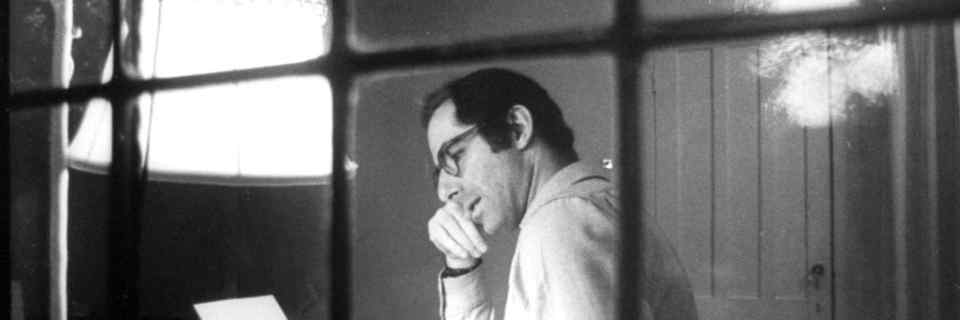I first discovered Philip Roth at age fifteen. My parents, bless them, placed Goodbye, Columbus in my hands. Having grown up in the suburbs of Detroit—the rock-ribbed WASP enclave of Grosse Pointe—I found him exotic, thrilling. His audacity staggered me. His books were smart and dirty, and until then, I didn’t know you could be both.
In college, in grad school in New York, I kept reading him—going back into his early works and moving forward with the latest ones. I taught American Pastoral to undergraduates, standing in front of a classroom in upstate New York and trying to explain why this book was so important from an intellectual perspective when really all I wanted to talk about was how moved I was by it, how it brought me to tears. I’d have Roth jags, where I’d read or reread several of his books in a row, like that one heady summer, around age thirty, when I read the first four Zuckerman novels in sweaty sequence, the paperback print smearing in my hands on the subway. In recent years, I read his slimmer novels in near tandem with my dad, and we swapped emails about them, savored them. And I’ll never forget the experience of reading Nemesis, Roth’s exquisite and haunting final novel, and reading it so slowly, with such care, because there already was this sense, confirmed a year or two later, that Roth might not reward us with another.
Inevitably, I’m no longer that well-behaved and wide-eyed Midwestern girl who tore through Goodbye, Columbus. In particular, my views on gender and power have evolved—from a deep, satisfying dive into feminist theory in graduate school through my more recent ideas about the canon and about consent and privilege—but I’ve always returned to Roth. And I’ve always been rewarded.
Over the years, I’ve gotten into many arguments about Roth with friends and acquaintances and students charging Roth with misogyny. Those arguments were interesting and valuable, but they never lessened my love for the books or my love of Roth. In fact, I’ve come to think few writers could dissect misogyny as ably as Roth could. He is relentless and ruthless in his excavation of characters like David Kepesh, consumed by their fantastical and oppressive conceptions of women. And Roth gives us credit for knowing the difference between a character’s misogyny and an author’s, and between blind or unconscious misogyny and a reckoning with it. Would I wish for more full-bodied female characters in Roth? Surely. But I greatly value the writer in him who explores the whole frightening cultural apparatus that renders women, in the eyes of so many of his male characters, as femme fatales or ciphers. Roth’s are books to wrestle with, occasionally to do battle.
This morning, waking to the news of Roth’s passing, I found myself trying to shake it off like a bad dream. Hours later, I’m taken aback at the depths of my sadness. I realize now I always believed he’d give us more. That we’d hear that wry, cunning, thoughtful voice of his again. That we’d at least get—if not a novel—the chance to see him wrap his formidable brain around changes in the culture, as we did after the 2016 election.
I wasn’t prepared, you see. I wasn’t prepared at all for the loss. His books are still so vital that they seem to spring from my shelf even now. They seem to vault into my hands with life and feeling and heart and rage. Will there ever be another writer like Philip Roth? A writer with such intellectual heft, emotional acuity, and artistic bravery? Probably. But today it doesn’t feel so. Today the loss feels immeasurable and ours.
Megan Abbott is the author, most recently, of You Will Know Me.
from The Paris Review https://ift.tt/2LmtgxM

Comments
Post a Comment